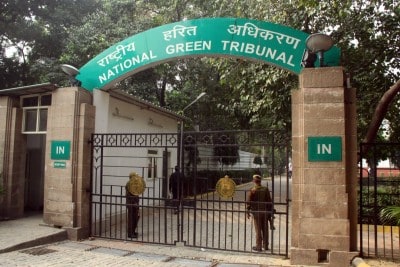 New Delhi, March 16 : The National Green Tribunal (NGT) has directed the Chief Secretary of Uttar Pradesh to ensure “remedial action in a mission mode” to bridge the gap for solid waste and sewage management in the eco-sensitive Taj Trapezium Zone.
New Delhi, March 16 : The National Green Tribunal (NGT) has directed the Chief Secretary of Uttar Pradesh to ensure “remedial action in a mission mode” to bridge the gap for solid waste and sewage management in the eco-sensitive Taj Trapezium Zone.
The Taj Trapezium Zone (TTZ) is a defined area of 10,400 sq.km around the Taj Mahal to protect the monument from pollution. The TTZ comprises monuments, including three World Heritage Sites — Taj Mahal, Agra Fort and Fatehpur Sikri.
A bench headed by Chairperson, Adarsh Kumar Goel, passed the order on an application seeking compliance of rules concerning solid waste, hazardous and other wastes and bio-medical waste management in Agra, the areas coming under the Cantonment Board and the Taj Trapezium Zone.
The bench also comprising Judicial Member, S.K. Singh, and Expert Member, Nagin Nanda, said the report submitted by the Central Pollution Control Board (CPCB) and Oversight Committee shows that the work executed so far is not adequate.
The matter has been pending for the last five years and repeated directions have been issued for taking remedial measures but still the progress is not up to expectations, the NGT said.
“Thus, the capacity for solid waste, including bio-mining and sewage management, needs to be enhanced by addressing the infrastructure gaps, installing more equipment and taking all other necessary measures.”
The bench directed the Uttar Pradesh Chief Secretary to ensure further remedial action in a mission mode taking into account the recommendations of the CPCB and the Oversight Committee by ensuring that adequate measures are taken to bridge the gap for solid and sewage waste management.
The NGT said there is a need to devise a manifest system for tying up rejects and residues arising out of bio-mining.
“Further duly authorized bio-medical, plastics and hazardous waste management facilities need to be set up and operated,” the NGT added.
Disclaimer: This story is auto-generated from IANS service.

